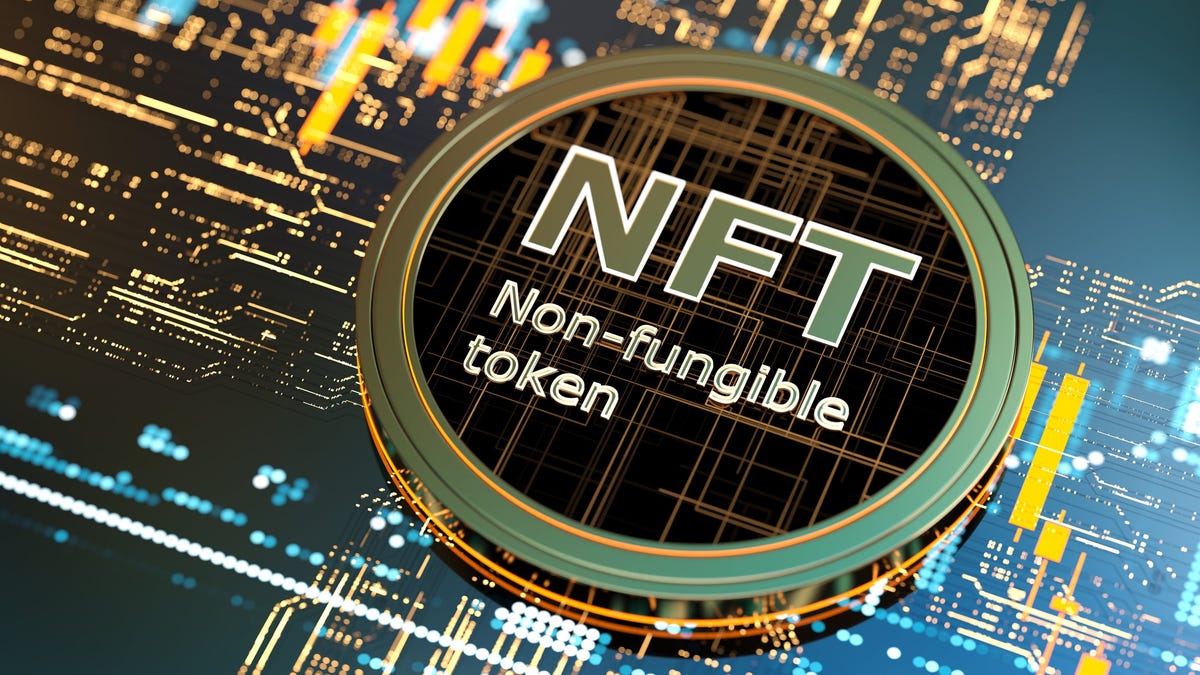You’ve probably heard of NFTs and cryptocurrency before. But what do those terms mean? More importantly, how do investors make money from NFTs?
NFT stands for non-fungible token, meaning unique digital asset. When you purchase NFTs, you are buying the ownership of digital items, often art pieces or other creative products.
They are usually produced using the same programming as cryptocurrencies, such as Bitcoin and Ethereum, but NFTs cannot be traded equally, since they do not hold the same value.
Similar to rare art pieces in the physical world, NFTs could be sold for millions of dollars. For example, artist Beeple created a collage of 5000 digital images, which sold for $69.3 million in 2021, making this the most expensive known NFT purchase so far.
Although NFTs have recently plummeted in popularity, with NFT sales falling approximately 75% from May to June, according to data from OpenSea, some people remain optimistic about the sector’s future.
Are you considering a crypto investment:Why current owners are ‘committed’ despite recent volatility
Forget crypto:This is the secret sauce to retiring a millionaire.
Bofan Ji bought his first NFT in February this year. He said he made the purchase due to the social aspect of NFTs, because his ownership gives him access to communities that own similar kinds of NFTs.
“I heard NFTs are the social layer … crypto(currency) is like the money layer, and Blockchain is sort of the technology layer,” Ji said.
Ji later found out that these communities could be very fragile. While members are very close when their NFT values increase, the community falls apart when the values drop.
He added it’s also difficult to make profits through NFT investments, because the purchase platforms and artists charge fees, meaning investors only make money when the NFT’s value increases by at least 10% to 20%.
In addition, Bitcoin and Ethereum prices have continued to drop over the past several months, leading to NFT value depreciations and some celebrities, such as Jimmy Fallon and Shonda Rhimes, abandoning their NFT avatars.
Bill Gates called crypto and NFT investments “100% based on greater fool theory” during a TechCrunch talk on climate change, referring to how overpriced assets could still increase in value when enough investors are willing to sell and buy.
During the event, Gates said he prefers investing in tangible assets, and that he doesn’t own digital assets, demonstrating his skepticism towards crypto.
One common criticism NFTs and cryptocurrencies have received is that they are harmful to the environment due to the energy used. Annual Bitcoin carbon footprint adds up to 73 million tonnes CO2, comparable to the carbon footprint of Central Asian country Turkmenistan, according to Digiconomist.
Nevertheless, Ji said he remains optimistic about the future of NFTs, because wealthy people may make them a status symbol, similar to how they show off expensive bags online. The social connections of NFTs also make this industry very powerful, he said.
“Now we’re still at this early stage, I think moving on, we’re going to onboard more users,” Ji said. “There’s so many possibilities for the future.”
Other investments:As stocks and crypto crash, is sports betting a better option?
Andy Zeng bought his first NFT in August 2020, a year before this new technology exploded in popularity. Total NFT sales reached $23 billion in 2021, according to data collected by DappRadar.
Because of his early entry into the industry, Zeng said overall he has gained profits through his NFT investments, although the first NFTs he purchased are now worthless due to the quick cycles of cryptographic assets.
“I’ve bought over 2,000 NFTs by this point, I’ve sold half as many … I love where the technology is going, I love where the communities are developing and evolving,” Zeng said.
Zeng believes digital possessions will become more valuable than physical possessions in the future as people spend more time online, he said. NFTs are the perfect example of valuable digital possessions.
“Because crypto is like a tech innovation, not just a financial innovation, the tech will get better and better. And as usage increases, we’ll definitely see positive price action,” Zeng said.
NFT investments are speculative and volatile, because this is a new technology, and values could fluctuate immensely, said Jordan Awoye, managing partner at independent investment advisory firm Awoye Capital.
He added NFT investors are also usually people who believe in the technology behind NFTs, because the space is still getting created, and many areas within crypto haven’t been defined, leading to room for scammers.
However, Awoye said he believes NFTs provide investment opportunities for under-valued projects, and could work as a diversification of financial portfolio for some people.
“You need to be somebody who is okay with risk … Since NFTs are such a risky and volatile investment, it’s not the first place I’m telling anybody to put their money,” Awoye said. “I would love for people to have a (solid) financial foundation before they invest into NFTs.”
Author
Administraroot


